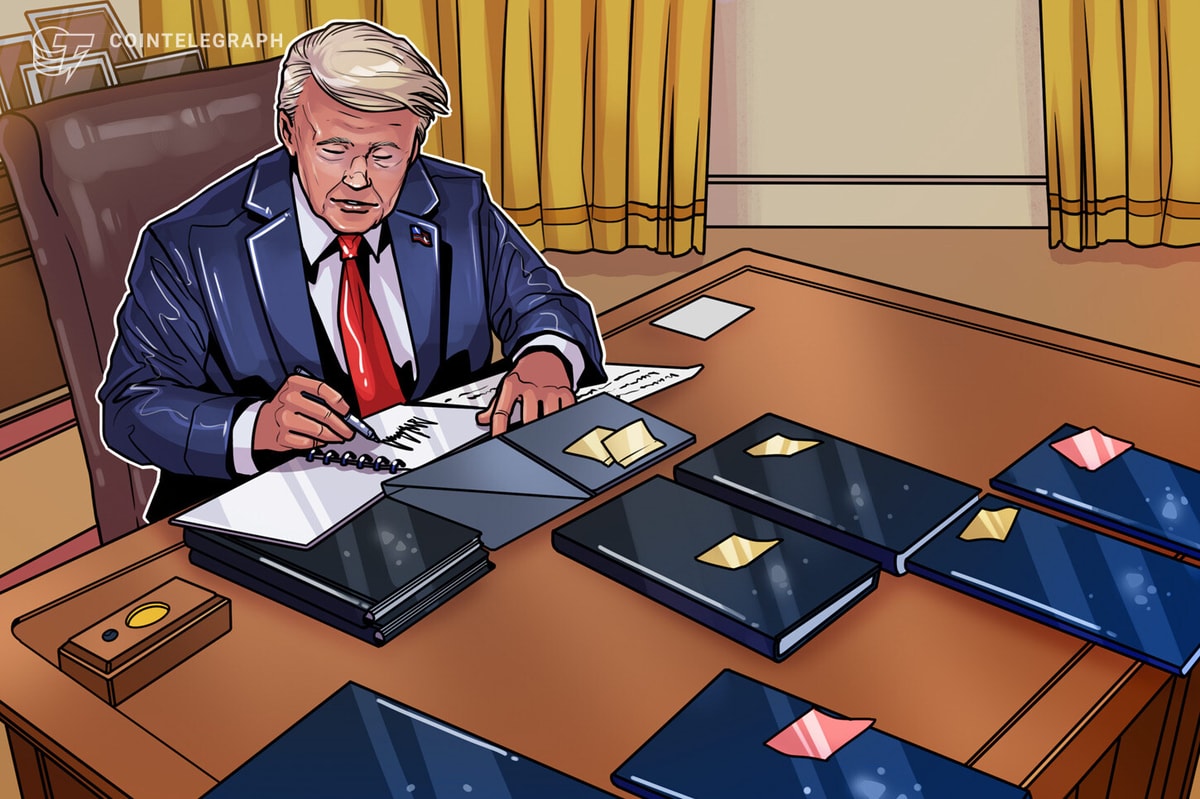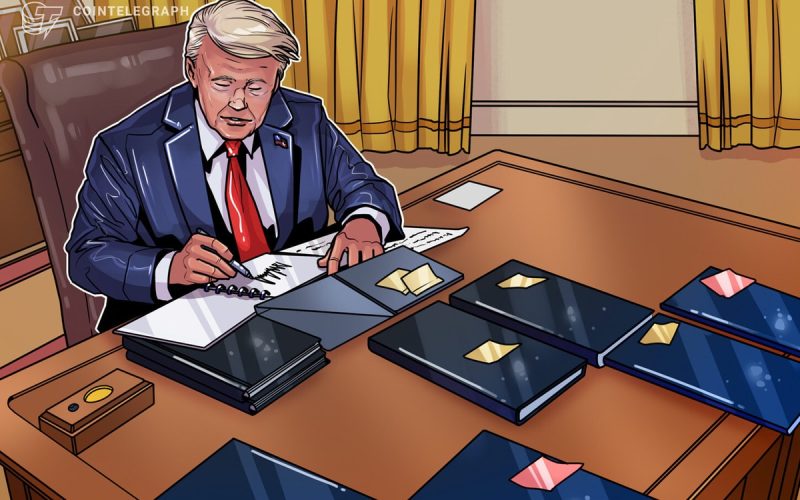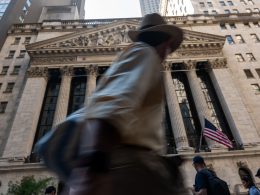In a significant development for the financial sector, former U.S. President Donald Trump is poised to sign an executive order addressing the contentious issue of “debanking.” Scheduled for Thursday, this directive aims to instruct federal bank regulators to identify and penalize financial institutions that have engaged in the practice of debanking. This comes at a time when various banking associations are actively working to impede banking applications from several digital asset firms.
According to a report from Bloomberg, citing a senior White House official, the executive order mandates regulators to analyze complaint data and requires financial institutions under the Small Business Administration’s oversight to make concerted efforts to reinstate clients who have been unlawfully denied banking services. The phenomenon of debanking has emerged as a pressing concern for certain political factions, who argue that businesses in sectors such as gun manufacturing and fossil fuels have faced denial of banking services due to ideological biases. This sentiment has also resonated within the cryptocurrency community.
During the previous administration of President Joe Biden, allegations surfaced regarding an initiative dubbed “Operation ChokePoint 2.0,” which some viewed as a concerted effort to push crypto businesses offshore amid the bear market of 2022. Despite the transition in leadership, the allegations of debanking have remained prevalent. The impending executive order will reportedly instruct regulators to eliminate the “reputational risk” category from guidance and training materials, a classification critics argue has been misused to target cryptocurrency companies unfairly.

As the Trump administration takes steps to combat debanking, powerful banking associations are simultaneously attempting to obstruct various crypto firms, including Ripple, from securing banking licenses. In a letter addressed to the Office of the Comptroller of the Currency (OCC) dated July 17, 2025, prominent organizations such as the American Banking Association and the Consumer Bankers Association outlined their concerns. They assert that there are significant policy and legal questions regarding whether the applicants’ proposed business plans align with fiduciary activities typically performed by national trust banks. Furthermore, they contend that the public disclosures associated with these applications do not permit adequate scrutiny from the public.
Ripple, known for its cryptocurrency XRP, submitted its banking license application on July 2, 2025, shortly after Circle, the issuer of the stablecoin USDC, filed to establish a national trust bank for managing its stablecoin reserves. These applications underscore the growing convergence between traditional financial institutions and native crypto enterprises, intensifying competition in the financial services landscape. Notably, stablecoin companies are introducing innovative payment methods that may challenge the existing frameworks established by traditional banks and credit card providers.
On July 18, 2025, the GENIUS Act, a legislative measure aimed at regulating stablecoins and their issuers, was officially signed into law. This development marks a pivotal moment in the ongoing evolution of the financial industry as it grapples with the implications of digital assets and the regulatory environment surrounding them.
“Cointelegraph is committed to providing independent, high-quality journalism across the crypto, blockchain, AI, fintech, and iGaming industries,” the publication states. “To support the free use of our website and sustain our editorial operations, some of the links published on our site may be affiliate links.”
As the landscape of banking and digital assets continues to evolve, the implications of Trump’s executive order and the ongoing actions of banking associations will likely shape the future of financial services in 2025 and beyond.









